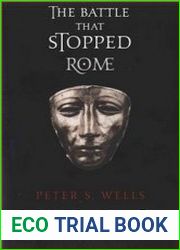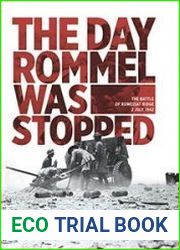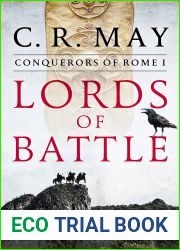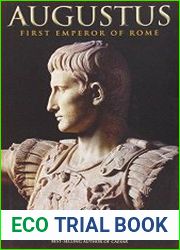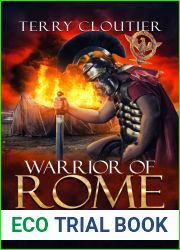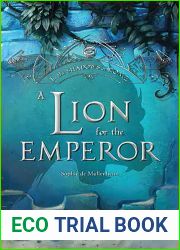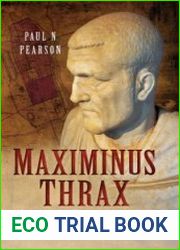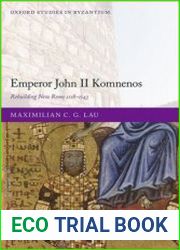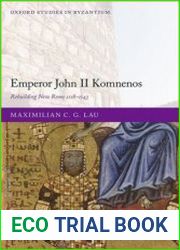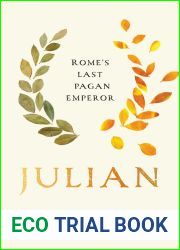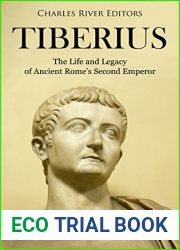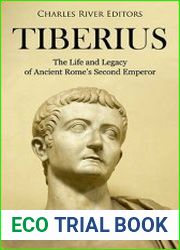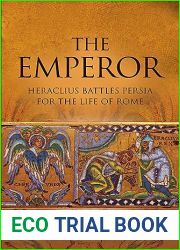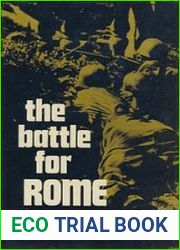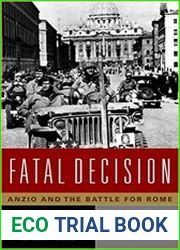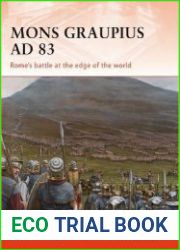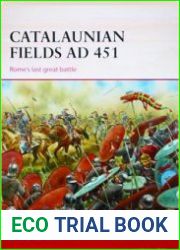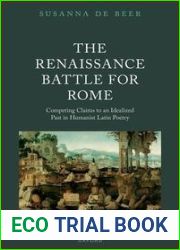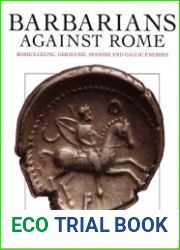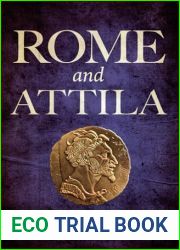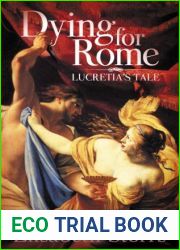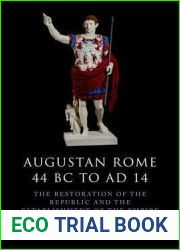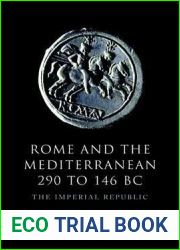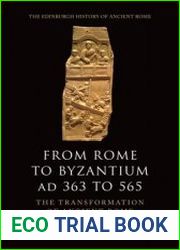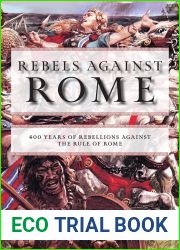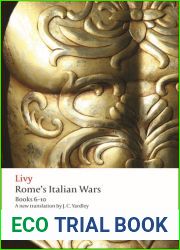
BOOKS - MILITARY HISTORY - The Battle That Stopped Rome Emperor Augustus, Arminius, a...

The Battle That Stopped Rome Emperor Augustus, Arminius, and the Slaughter of the Legions in the Teutoburg Forest
Author: Peter S. Wells
Year: 2004
Pages: 273
Format: PDF OCR
File size: 32 MB
Language: ENG

Year: 2004
Pages: 273
Format: PDF OCR
File size: 32 MB
Language: ENG

The Battle That Stopped Rome: Emperor Augustus and the Slaughter of the Legions in the Teutoburg Forest In AD 9, a pivotal battle took place in the Teutoburg Forest, Germany, that changed the course of Western history. This was the infamous Battle of Teutoburg Forest, where a Roman traitor led an army of barbarians in ambushing and slaughtering three entire Roman legions, comprising of 2,0000 men, half of the Roman army in Europe. The defeat was so devastating that it not only halted the Roman Empire's expansion beyond the Rhine River but also shaped the cultural border between Latin Western Europe and Germanic Central and Eastern Europe for the next 400 years. The story of this battle has never been fully told until now. The book delves into the intricate details of the battle, highlighting the key players and their motivations, as well as the aftermath of the defeat. It explores how this event altered the trajectory of the Roman Empire and influenced the future of Europe. The book begins with the rise of Emperor Augustus, who brought peace and stability to a war-torn Rome after the death of Julius Caesar. His reign marked the beginning of the Pax Romana, a period of relative calm that lasted for over two centuries.
Битва, остановившая Рим: император Август и резня легионов в Тевтобургском лесу В 9 году нашей эры в Тевтобургском лесу, Германия, произошла ключевая битва, которая изменила ход западной истории. Это была печально известная битва при Тевтобургском Лесу, где римский предатель повел армию варваров в засаду и резню трех целых римских легионов, состоящих из 2 0000 человек, половины римской армии в Европе. Поражение было настолько сокрушительным, что не только остановило экспансию Римской империи за реку Рейн, но и сформировало культурную границу между Латинской Западной Европой и Германской Центральной и Восточной Европой на следующие 400 лет. История этого боя до сих пор так до конца и не была рассказана. Книга углубляется в запутанные детали битвы, выделяя ключевых игроков и их мотивацию, а также последствия поражения. В нем исследуется, как это событие изменило траекторию Римской империи и повлияло на будущее Европы. Книга начинается с возвышения императора Августа, который принёс мир и стабильность в охваченный войной Рим после смерти Юлия Цезаря. Его правление положило начало Pax Romana, периоду относительного спокойствия, который длился более двух веков.
La bataille qui a arrêté Rome : l'empereur Auguste et le massacre des légions dans la forêt de Teutobourg En 9 av. J.-C., dans la forêt de Teutobourg, en Allemagne, une bataille clé a eu lieu qui a changé le cours de l'histoire occidentale. C'était la tristement célèbre bataille de la forêt de Teutobourg, où un traître romain a conduit une armée de barbares dans une embuscade et le massacre de trois légions romaines entières de 2 0000 hommes, la moitié de l'armée romaine en Europe. La défaite a été si écrasante que non seulement l'expansion de l'Empire romain au-delà du Rhin a été stoppée, mais aussi la frontière culturelle entre l'Europe latine occidentale et l'Europe centrale et orientale allemande pour les 400 prochaines années. L'histoire de ce combat n'a toujours pas été racontée. livre s'approfondit dans les détails confus de la bataille, mettant en évidence les acteurs clés et leur motivation, ainsi que les conséquences de la défaite. Il examine comment cet événement a changé la trajectoire de l'Empire romain et influencé l'avenir de l'Europe. livre commence par l'ascension de l'empereur Auguste, qui a apporté la paix et la stabilité à Rome en guerre après la mort de Jules César. Son règne a marqué le début de la Pax Romana, une période de calme relatif qui a duré plus de deux siècles.
Batalla que detuvo Roma: el emperador Augusto y la masacre de legiones en el bosque de Teutoburgo En el 9 d. C., en el bosque de Teutoburgo, Alemania, se produjo una batalla clave que cambió el curso de la historia occidental. Fue la infame batalla del Bosque de Teutoburgo, donde un traidor romano llevó a un ejército de bárbaros a emboscar y masacrar a tres legiones romanas enteras, compuestas por 2 0000 hombres, la mitad del ejército romano en . La derrota fue tan aplastante que no sólo detuvo la expansión del Imperio Romano más allá del río Rin, sino que también formó la frontera cultural entre Occidental Latina y Central y Oriental Alemana durante los siguientes 400 . La historia de esta batalla sigue siendo así hasta el final y no se ha contado. libro profundiza en los confusos detalles de la batalla, destacando a los jugadores clave y su motivación, así como las consecuencias de la derrota. Explora cómo este suceso cambió la trayectoria del Imperio romano y afectó al futuro de . libro comienza con la exaltación del emperador Augusto, que trajo paz y estabilidad a la Roma sumida en la guerra tras la muerte de Julio César. Su reinado marcó el inicio del Pax Romana, un período de relativa calma que duró más de dos siglos.
A batalha que travou Roma: o imperador Augusto e o massacre de legiões na floresta de Teutoburgo Em 9 de Cristo, a floresta de Teutoburgo, na Alemanha, teve uma batalha fundamental que mudou o rumo da história ocidental. Foi uma batalha infame na Floresta de Teutoburgo, onde um traidor romano conduziu um exército de bárbaros para emboscar e massacrar três legiões romanas inteiras formadas por 2 0000 homens, metade do exército romano na . A derrota foi tão devastadora que não só impediu a expansão do Império Romano pelo Rio Reno, mas também criou uma fronteira cultural entre a Ocidental Latina e a Central e Oriental Alemã pelos próximos 400 anos. A história deste combate ainda não foi contada. O livro é aprofundado em detalhes confusos da batalha, destacando os principais jogadores e sua motivação, bem como as consequências da derrota. Ele investiga como o evento mudou a trajetória do Império Romano e afetou o futuro da . O livro começa com a ascensão do Imperador Augusto, que trouxe paz e estabilidade para Roma, assolada pela guerra, após a morte de Júlio César. Seu reinado deu início à Pax Romana, um período de relativa tranquilidade que durou mais de dois séculos.
La battaglia che fermò Roma: l'imperatore August e il massacro delle legioni nella foresta di Teuthorg Nel 9 Cristo, nella foresta di Teutoburgo, in Germania, avvenne una battaglia chiave che cambiò il corso della storia occidentale. Fu la famigerata battaglia nella Foresta di Teuthorg, dove un traditore romano guidò un esercito di barbari in un'imboscata e nel massacro di tre intere legioni romane formate da 2 0000 uomini, metà dell'esercito romano in . La sconfitta è stata così devastante che non solo ha fermato l'espansione dell'impero romano oltre il fiume Reno, ma ha anche creato un confine culturale tra l'occidentale latina e l'centro-orientale tedesca per i prossimi 400 anni. La storia di questa battaglia non è ancora stata raccontata. Il libro approfondisce i dettagli confusi della battaglia, evidenziando i giocatori chiave e la loro motivazione, così come le conseguenze della sconfitta. In esso si indaga su come questo evento abbia cambiato la traiettoria dell'impero romano e influenzato il futuro dell'. Il libro inizia con l'ascesa dell'Imperatore Augusto, che portò pace e stabilità nella Roma devastata dalla guerra dopo la morte di Giulio Cesare. Il suo regno ha dato inizio alla Pax Romana, un periodo di relativa tranquillità durato più di due secoli.
Die Schlacht, die Rom stoppte: Kaiser Augustus und das Massaker der gionen im Teutoburger Wald Im Jahr 9 n. Chr. fand im Teutoburger Wald eine Schlüsselschlacht statt, die den Lauf der westlichen Geschichte veränderte. Es war die berüchtigte Schlacht am Teutoburger Wald, in der ein römischer Verräter eine Armee von Barbaren in einen Hinterhalt führte und drei ganze römische gionen von 2 0000 Mann, die Hälfte der römischen Armee in , massakrierte. Die Niederlage war so niederschmetternd, dass sie nicht nur die Expansion des Römischen Reiches über den Rhein hinaus stoppte, sondern auch für die nächsten 400 Jahre die kulturelle Grenze zwischen dem lateinischen Westeuropa und dem deutschen Mittel- und Osteuropa bildete. Die Geschichte dieses Kampfes ist bis heute nie vollständig erzählt worden. Das Buch taucht tief in die komplizierten Details der Schlacht ein und hebt die Schlüsselspieler und ihre Motivation sowie die Auswirkungen der Niederlage hervor. Es untersucht, wie dieses Ereignis die Flugbahn des Römischen Reiches verändert und die Zukunft s beeinflusst hat. Das Buch beginnt mit der Erhebung des Kaisers Augustus, der nach dem Tod Julius Cäsars Frieden und Stabilität ins kriegszerrüttete Rom brachte. Seine Herrschaft markierte den Beginn der Pax Romana, einer Zeit relativer Ruhe, die mehr als zwei Jahrhunderte dauerte.
Bitwa, która zatrzymała Rzym: cesarz Augustus i masakra w lesie Teutoburg W 9 r. w lesie Teutoburg w Niemczech doszło do kluczowej bitwy, która zmieniła przebieg historii Zachodu. Była to niesławna bitwa w lesie Teutoburg, gdzie rzymski zdrajca poprowadził armię barbarzyńców do zasadzki i masakry trzech całych legionów rzymskich składających się z 2,0000 ludzi, połowa armii rzymskiej w Europie. Klęska była tak miażdżąca, że nie tylko powstrzymała ekspansję Cesarstwa Rzymskiego poza Ren, ale także stworzyła granicę kulturową między Europą Zachodnią Łacińską a niemiecką Europą Środkową i Wschodnią przez następne 400 lat. Historia tej bitwy nie została jeszcze w pełni opowiedziana. Książka zagłębia się w skomplikowane szczegóły bitwy, podkreślając kluczowe gracze i ich motywację, a także konsekwencje porażki. Bada, jak to wydarzenie zmieniło trajektorię Imperium Rzymskiego i wpłynęło na przyszłość Europy. Księga rozpoczyna się od powstania cesarza Augusta, który wprowadził pokój i stabilność do rozdartego wojną Rzymu po śmierci Juliusza Cezara. Jego panowanie zapoczątkowało Pax Romana, okres względnego spokoju trwający ponad dwa wieki.
הקרב שעצר את רומא: הקיסר אוגוסטוס וטבח יער טויטובורג בשנת 9 לספירה, קרב מפתח התרחש ביער טויטובורג, גרמניה, ששינה את מהלך ההיסטוריה המערבית. זה היה הקרב הידוע לשמצה של יער טויטובורג, שבו בוגד רומאי הוביל צבא של ברברים למארב וטבח שלושה לגיונות רומיים שלמים שמורכבים מ-2,0000 איש, מחצית מהצבא הרומי באירופה. התבוסה הייתה כה מוחצת שלא רק עצרה את התפשטותה של האימפריה הרומית אל מעבר לנהר הריין, אלא גם יצרה את הגבול התרבותי בין מערב אירופה הלטינית למרכז גרמניה ומזרח אירופה במשך 400 השנים הבאות. הסיפור של הקרב הזה עדיין לא סופר במלואו. הספר מתעמק בפרטים המורכבים של הקרב, מדגיש את שחקני המפתח ואת המוטיבציה שלהם, כמו גם את תוצאות התבוסה. הוא חוקר כיצד אירוע זה שינה את מסלולה של האימפריה הרומית והשפיע על עתידה של אירופה. הספר מתחיל עם עלייתו של הקיסר אוגוסטוס, שהביא שלום ויציבות לרומא שסועת המלחמות לאחר מותו של יוליוס קיסר. שלטונו התנהל בפקס רומאנה, תקופה של שלווה יחסית שנמשכה יותר ממאתיים שנה.''
Roma'yı Durduran Savaş: İmparator Augustus ve Teutoburg Ormanı Katliamı MS 9'da, Almanya'nın Teutoburg Ormanı'nda Batı tarihinin akışını değiştiren önemli bir savaş gerçekleşti. Bu, Romalı bir hainin, Avrupa'daki Roma ordusunun yarısı olan 2 0000 kişiden oluşan üç Roma lejyonunu pusuya düşürmek ve katletmek için bir barbar ordusunu yönettiği kötü şöhretli Teutoburg Ormanı Savaşı'ydı. Yenilgi o kadar eziciydi ki, Roma İmparatorluğu'nun Ren Nehri'nin ötesine genişlemesini durdurmakla kalmadı, aynı zamanda önümüzdeki 400 yıl boyunca Latin Batı Avrupa ile Alman Orta ve Doğu Avrupa arasındaki kültürel sınırı oluşturdu. Bu savaşın öyküsü henüz tam olarak anlatılmamıştır. Kitap, savaşın karmaşık ayrıntılarına giriyor, kilit oyuncuları ve motivasyonlarını ve yenilginin sonuçlarını vurguluyor. Bu olayın Roma İmparatorluğu'nun yörüngesini nasıl değiştirdiğini ve Avrupa'nın geleceğini nasıl etkilediğini araştırıyor. Kitap, Julius Caesar'ın ölümünden sonra savaştan zarar gören Roma'ya barış ve istikrar getiren İmparator Augustus'un yükselişiyle başlıyor. Saltanatı, iki yüzyıldan fazla süren nispeten sakin bir dönem olan Pax Romana'yı başlattı.
المعركة التي أوقفت روما: الإمبراطور أغسطس ومذبحة غابة تيوتوبورغ في 9 بعد الميلاد، وقعت معركة رئيسية في غابة توتوبورغ بألمانيا، والتي غيرت مسار التاريخ الغربي. كانت هذه معركة غابة تيوتوبورغ سيئة السمعة، حيث قاد خائن روماني جيشًا من البرابرة لنصب كمين وذبح ثلاثة فيالق رومانية بأكملها تتكون من رجال 2 0000، نصف الجيش الروماني في أوروبا. كانت الهزيمة ساحقة لدرجة أنها لم توقف توسع الإمبراطورية الرومانية خارج نهر الراين فحسب، بل شكلت أيضًا الحدود الثقافية بين أوروبا الغربية اللاتينية وأوروبا الوسطى والشرقية الألمانية على مدار 400 عام القادمة. لم يتم سرد قصة هذه المعركة بالكامل بعد. يتعمق الكتاب في التفاصيل المعقدة للمعركة، ويسلط الضوء على اللاعبين الرئيسيين ودوافعهم، فضلاً عن عواقب الهزيمة. يستكشف كيف غير هذا الحدث مسار الإمبراطورية الرومانية وأثر على مستقبل أوروبا. يبدأ الكتاب بصعود الإمبراطور أغسطس، الذي جلب السلام والاستقرار إلى روما التي مزقتها الحرب بعد وفاة يوليوس قيصر. بشر عهده بباكس رومانا، وهي فترة من الهدوء النسبي استمرت أكثر من قرنين.
로마를 막은 전투: 아우구스투스 황제와 토이 토 부르크 산림 학살 AD 9, 서부 역사를 바꾼 독일 토이 토 부르크 숲에서 주요 전투가 벌어졌습니다. 이것은 악명 높은 Teutoburg Forest 전투로 로마 배신자들이 야만인 군대를 이끌고 유럽의 로마 군대의 절반 인 2,0000 명의 남자로 구성된 로마 군단 전체를 매복시키고 학살했습니다. 패배는 너무 무너져서 라인강 너머로 로마 제국의 확장을 중단했을뿐만 아니라 향후 400 년 동안 라틴 서유럽과 독일 중부 및 동유럽 사이의 문화적 경계를 형성했습니다. 이 전투의 이야기는 아직 완전히 들리지 않았습니다. 이 책은 전투의 복잡한 세부 사항을 탐구하여 주요 플레이어와 동기 부여 및 패배의 결과를 강조합니다. 이 사건이 어떻게 로마 제국의 궤도를 바꾸고 유럽의 미래에 영향을 미쳤는지 탐구합니다. 이 책은 줄리어스 시저 (Julius Caesar) 가 사망 한 후 전쟁으로 인한 로마에 평화와 안정을 가져다 준 아우구스투스 황제의 부상으로 시 그의 통치는 2 세기 이상 지속 된 상대적으로 평온한시기 인 Pax Romana에서 시작되었습니다.
ローマを阻止した戦い:アウグストゥス皇帝とテウトブルクの森の虐殺西暦9、ドイツのテウトブルクの森で重要な戦いが起こり、西洋の歴史の流れが変わりました。これはテウトブルクの森の悪名高い戦いであり、ローマの裏切り者が野蛮人の軍隊を率いてヨーロッパのローマ軍の半分である2,0000人からなる3つのローマ軍団を待ち伏せして虐殺した。敗北は非常に激しく、ライン川以外のローマ帝国の拡大を阻止しただけでなく、ラテン系の西ヨーロッパとドイツの中央ヨーロッパと東ヨーロッパの間の文化的境界を400間形成した。この戦いの話はまだ完全には語られていません。この本は、戦闘の複雑な詳細を詳しく説明し、重要なプレイヤーとその動機、敗北の結果を強調しています。この出来事がローマ帝国の軌道をどのように変え、ヨーロッパの未来に影響を与えたかを探る。この本は、ユリウス・カエサルの死後、戦争に引き裂かれたローマに平和と安定をもたらしたアウグストゥス皇帝の台頭から始まります。彼の治世は、2世紀以上続いた比較的穏やかな時期であったパックス・ロマーナであった。
阻止羅馬的戰鬥:奧古斯都皇帝和特托堡森林的軍團大屠殺。公元9,德國特托堡森林發生了一場關鍵的戰鬥,改變了西方歷史的進程。這是一場臭名昭著的Teutoburg森林戰役,羅馬叛徒率領一支野蠻人軍隊伏擊並屠殺了由20000名士兵組成的三個整個羅馬軍團,占歐洲羅馬軍隊的一半。這次失敗是如此慘敗,以至於它不僅阻止了羅馬帝國在萊茵河以外的擴張,而且還形成了未來400拉丁美洲西歐與德國中歐和東歐之間的文化邊界。到目前為止,這場戰鬥的故事一直沒有被講述。這本書深入探討了戰鬥的復雜細節,突出了關鍵人物及其動機以及失敗的後果。它探討了這一事件如何改變了羅馬帝國的軌跡,並影響了歐洲的未來。這本書始於奧古斯都皇帝的崛起,他在尤利烏斯·凱撒(Julius Caesar)死後為飽受戰爭蹂躪的羅馬帶來了和平與穩定。他的統治標誌著Pax Romana的開始,Pax Romana是一個相對平靜的時期,持續了兩個多世紀。







